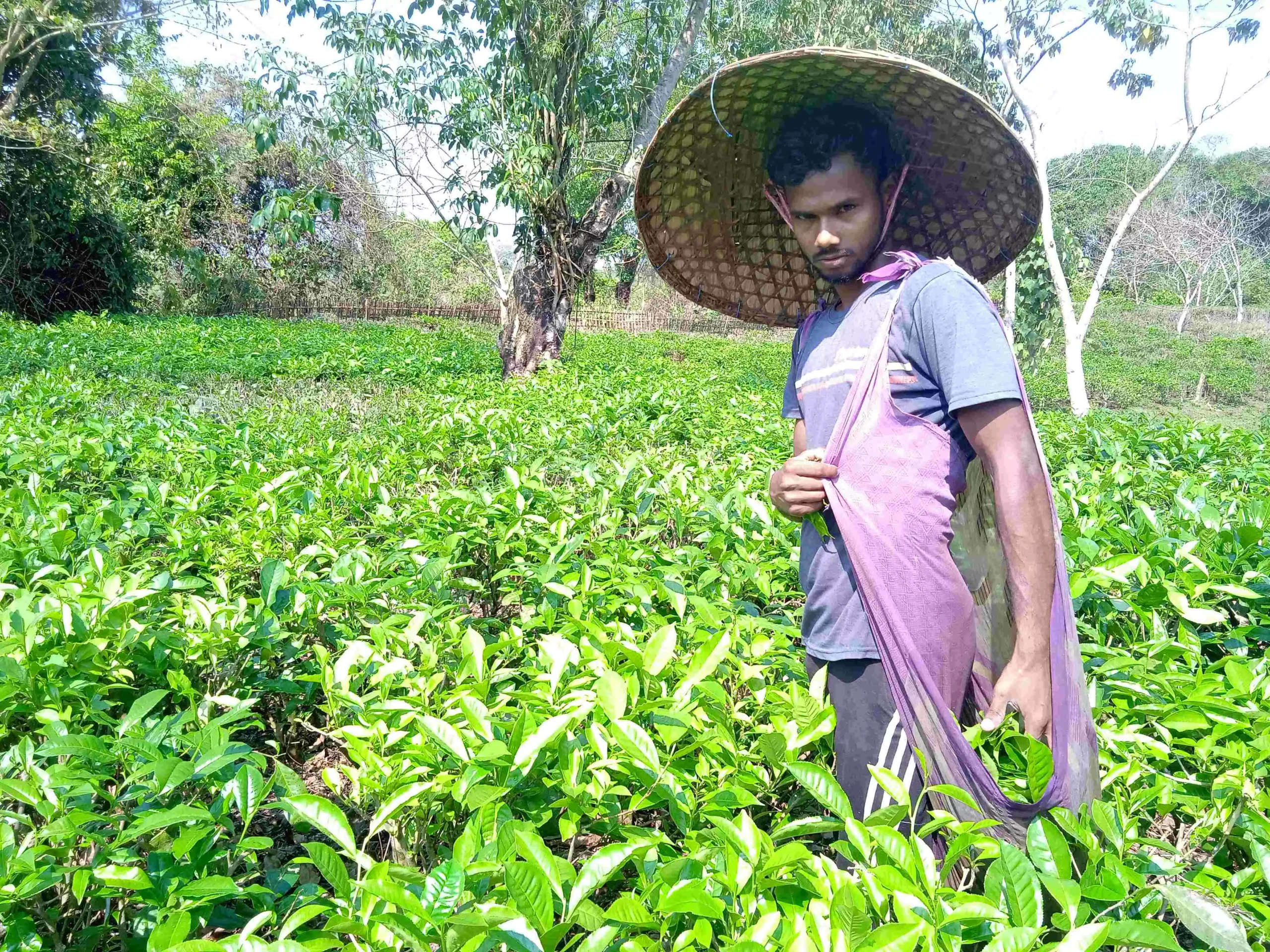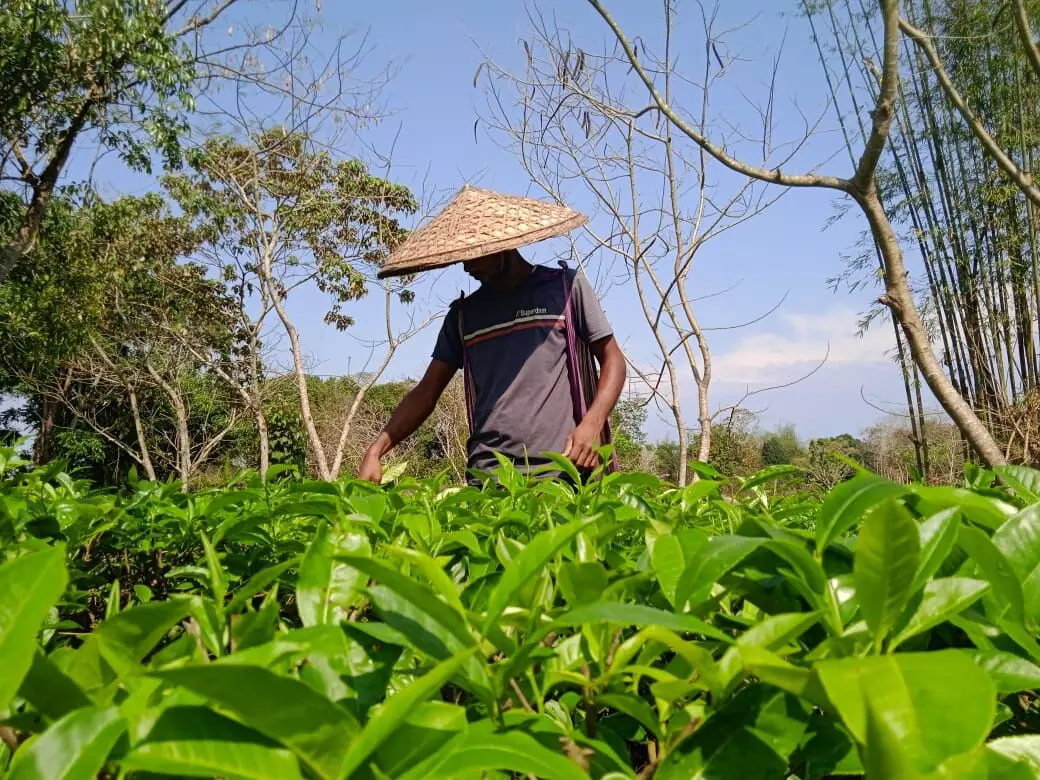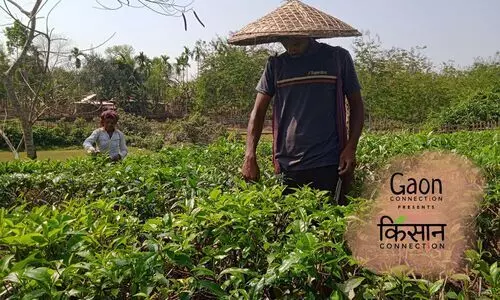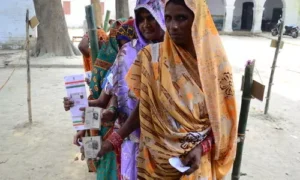Subhashish Dutta is not the one to give up. He tried to get into the armed forces eleven times, but when he did not make it, he decided to shift his focus elsewhere. And, tea became his new passion.
The 27-year-old is now a successful tea grower and his prime mission is to turn his village, Sonachera-2, Dholai Constituency, in Cachar district, into a major tea producing hub. Sonachera – 2 is located in a remote part of Assam, some 400 kms away from Dispur, the state capital. The Loharband forest surrounds the village and development here is still a very distant dream for the inhabitants. Roads leading to the village are in poor shape and almost non-existent.
Dutta has 15,000 tea buses on his two-acre ancestral land and he sells about 2.5 quintals of tea leaves every week. The young tea farmer uses manure and vermicompost instead of chemical fertilisers for his tea plants and he has also installed a solar-powered motor to water the garden in the dry season.
Apart from encouraging local farmers to take up tea cultivation, he is also providing livelihood opportunities to people in three neighbouring villages. While he is using natural fertilisers, he is still in the process of getting the organic certification for his garden. That will take a while, he said.

Subhashish Dutta at his farm.
“Assam is known for tea and I am proud to associate myself with this sector. The tea leaves are delicate and vulnerable to climate change and they need special care. Every morning my first task is to visit my garden and check on my plants,” Dutta told Gaon Connection. “I may not earn much but I am showing the way and earning the blessings of many,” he added.
Also Read: Not Quite the Perfect Weather for Darjeeling Tea
A wood cutter’s son becomes a tea farmer
“My father was a wood cutter. I still remember as a child on holidays, my brother and I accompanied him into the forests, as if we could get more wood, it would mean more money for us,” Dutta reminisced.
The young man wanted to serve the country in some way and that was the reason he tried hard to become a soldier. But, he said destiny had something else in store for him.
“I had to quit studies after my tenth standard as my family could not afford to keep me in school. I began to work in a nearby tea garden, where I learnt quite a bit about tea production,” the 27-year-old narrated.
In 2015, barely 20 years old, Dutta decided to start growing tea on two acres of ancestral land that had been lying unused. But, all too soon, he realised starting a tea garden required a sizable investment. So, he put the garden on hold and moved to Bengaluru in Karnataka, over 3,200 kms from his village, to work as a security guard there for a few months, long enough to save about Rs 18, 000 to go forward with his tea garden, back home.

Apart from encouraging local farmers to take up tea cultivation, Dutta is also providing livelihood opportunities to people in three neighbouring villages.
Also Read: COVID19 and rising mental health illness among women tea workers of Assam
Sharing tea tips
Today, Dutta has 15,000 tea buses on his land and sells about 2.5 quintals of tea leaves every week, from which earns a minimum of Rs 15,000 a month. He also encourages others in the area to take to tea growing.
“To be very honest, even though I am from a community of tea growers, I knew nothing about growing tea. But, Subhashish advised me to start my own garden and I did on five bighas of land,” Biresh Mura, a tea grower from the same village, told Gaon Connection.
Mura now sells around 70 kg-80 kg of tea leaves per week, and he hopes the yield will increase soon. “Subhashis is my inspiration,” he said.
Brajanath Chakraborty, the panchayat president of eight villages one of which is Sonachera-2, said Dutta was the pride of their village. “His initiatives are noteworthy and have positively impacted the development of the village. Many young people who did not know what to do with their lives have taken inspiration from him and are now doing something on their own,” Chakraborty told Gaon Connection.
“Subhashis is teaching others to make something of their lives and at the same time he is currently providing employment to about three villagers, and has plans to expand and employ more people. He is setting a great example of Atma Nirbhar Bharat. The economic condition of the village is improving. We need more people like Subhashis,” the panchayat president added.
Workers benefit
“Working in the garden has changed me and my family’s life drastically. I am now financially independent and can easily support my family,” Basanti Ghatowar, a 50-year-old employee of Subhashis, told Gaon Connection.
After working along with his employees in the garden from dawn to dusk, Subhashis hands over the day’s yield to tea collector Supayan Choudhary.
“My job is to collect tea leaves from various tea gardens and deposit them at the Bandukmara Tea Estate in the neighbouring district Hailakandi. There it is processed and sold. I know from experience that the tea leaves grown in Subhashis’s garden are of great quality,” Choudhary told Gaon Connection.
“I would love to open my own tea factory but that requires a lot of money,” Dutta said. He said that if he could have his own factory he would have more say in the marketing and designing of his product. And, he would be able to provide employment to more people of his village. But, he knows that dream will take some more time to realise.
“Ours is a remote village where people still lack basic amenities. I want the youth of my village to take up tea production in their own way so that together we can become a major tea producing hub,” Dutta said.
Meanwhile, he said that he was going to put up a bamboo hut near his tea garden. “People can come here, relax and tour the nearby forests too. It will be like a resort in my village,” he smiled.




















